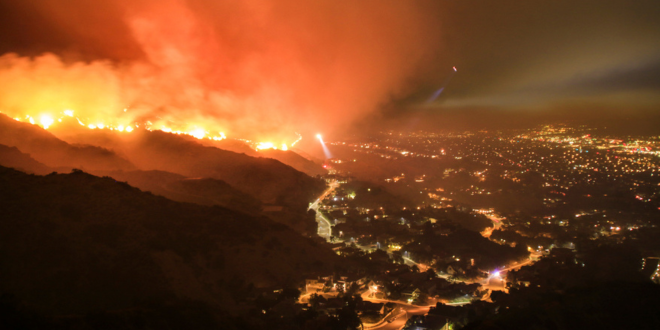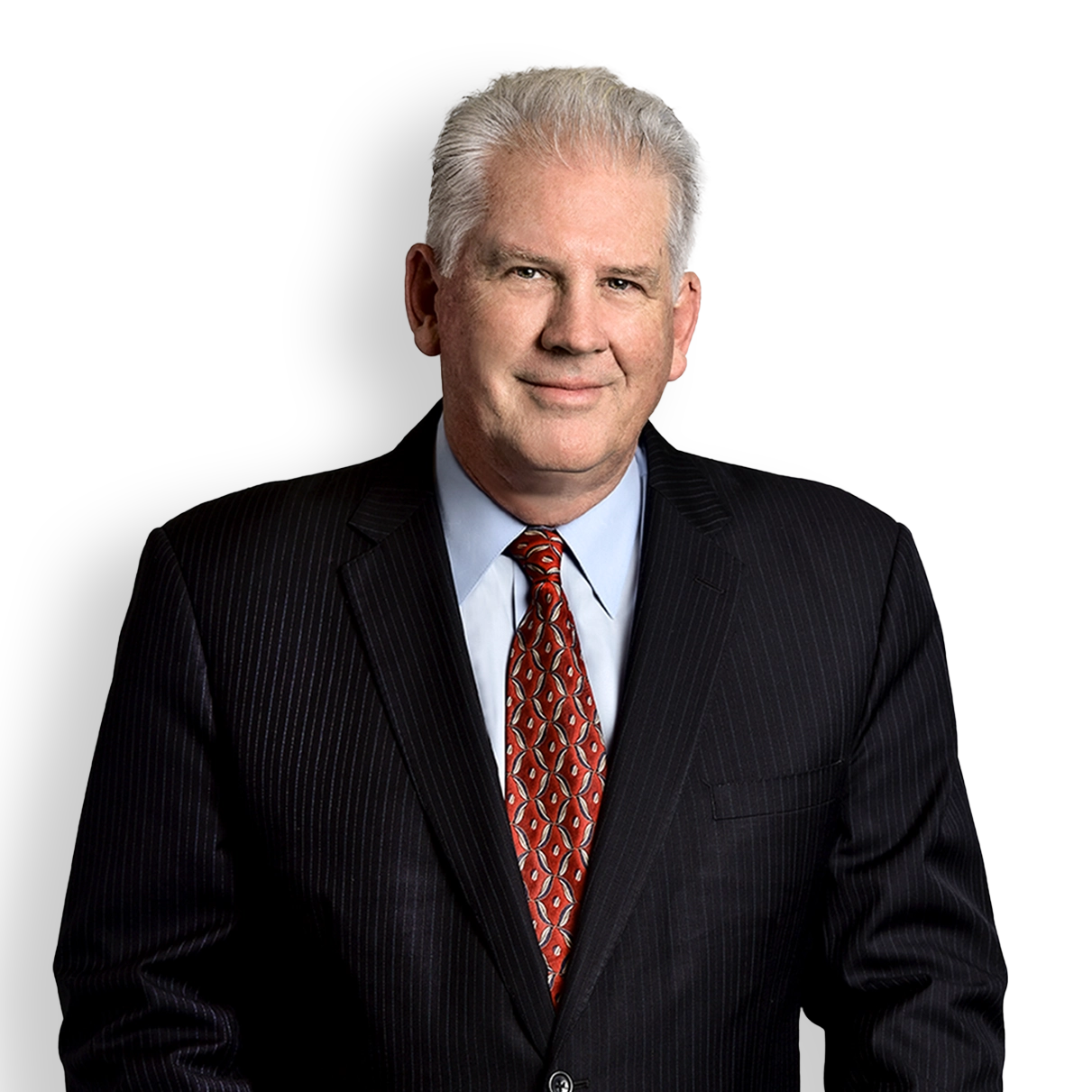What Healthcare Providers Need to Know About CMS Waivers and Flexibilities in Response to The Los Angeles Fires

The Hooper, Lundy & Bookman team is heartbroken by the devasting impacts of the Palisades Fire, Eaton Fire, and other fires in the Los Angeles area. We stand in support of the impacted communities, including our colleagues, their loved ones, and our clients. We are committed to contributing to relief efforts, and to continuing our support of clients through these challenges. The following article summarizes key government actions and available resources for healthcare providers navigating the operational and compliance challenges presented by this ongoing disaster.
Emergency Declarations
Both a major disaster declaration and a public health emergency declaration have been issued in response to the ongoing wildfires in the Los Angeles area. On January 8, 2025, President Biden approved a major disaster declaration for California. On January 10, 2025, HHS Secretary Xavier Becerra declared a Public Health Emergency (PHE) for California, retroactive to January 7, 2025. These declarations unlock critical resources and regulatory flexibilities for healthcare providers and suppliers serving Medicare and Medicaid beneficiaries.
Section 1135 of the Social Security Act
Under Section 1135 of the Social Security Act, the HHS Secretary has authority to temporarily waive or modify the application of certain requirements and sanctions, such as those relating to: (1) conditions of participation or other certification requirements, (2) requirements that health care professionals be licensed in the State in which they provide services, (3) patient transfers, (4) the Stark Law, and (5) HIPAA. On January 10, 2025, HHS Secretary Xavier Becerra exercised this authority and announced Section 1135 waivers and modifications in response to the wildfires.
Blanket Waivers under Section 1135 of the Social Security Act
CMS has issued blanket waivers under Section 1135 of the Social Security Act, effective from January 7, 2025, through the end of the PHE declaration or when no longer needed. These waivers automatically apply and do not require individual provider applications. Key blanket waivers available to affected providers include:
Hospitals:
- Offsite Transfers: Waiver of certain EMTALA requirements, allowing hospitals to screen patients offsite so long as the screening is consistent with California’s emergency preparedness plan.
- Medical Staff: To address workforce concerns and potential shortages: (1) physicians whose privileges will expire can continue practicing at a hospital and (2) new physicians can practice before full medical staff / governing body review and approval.
- Physical Environment: Relaxation of certain physical environment requirements for hospitals to increase surge capacity. CMS is allowing facility and non-facility space that is not normally used for patient care to be used for patient care, provided the location is approved by California and consistent with California’s emergency preparedness plan.
- Telemedicine: Waiver of telemedicine restrictions related to telemedicine services agreements with distant-site hospitals.
- Swing Beds: Expanded ability for hospitals to establish skilled nursing facility (SNF) swing beds to provide additional options for hospitals with patients who no longer require acute care but are unable to find placement in a SNF.
- Housing Acute Care Inpatients: Flexibilities to more easily allow inpatient rehabilitation facilities and inpatient psychiatric facilities to house acute care inpatients.
Long-Term Care Facilities and SNFs:
- Waive Pre-Admission Screening and Annual Resident Review (PASARR): Waiver of 42 CFR § 483.20(k), allowing nursing homes to admit new residents who have not received Level 1 or Level 2 Preadmission Screening. Level 1 assessments may be performed postadmission.
- Telehealth: Waiver of the requirement in 42 CFR § 483.30, allowing physicians and non-physician practitioners to perform telehealth visits for nursing home residents.
- Physical Environment. Waiver of the requirements in 42 CFR 483.90, allowing for rooms in a long-term care facility not normally used as a resident’s room to be used to accommodate beds and residents for resident care in emergencies and situations needed to help with surge capacity, provided the location is consistent with California’s emergency preparedness plan.
Hospice and Home Health Agencies:
- Extended Timeframes for Hospice Assessments: Extends 15-day updating requirement for comprehensive assessments to 21 days.
- Extended Timeframes for Home Health Agencies’ Outcome and Assessment Information Set:
- Extends 5-day completion requirement for the comprehensive assessment to 30 days
- No enforcement of 30-day submission requirement for the Outcome and Assessment Information Set; allows delayed submission.
- Initial Assessments by Home Health Agencies: Waiver of the requirements in 42 CFR § 484.55(a), allowing home health agencies to perform Medicare-covered initial assessments and determine patients’ homebound status remotely or by record review.
- Waive Onsite Nurse Visit Requirement: Waiver of the requirements in 42 CFR § 418.76(h)(1)-(2) for hospices, and 42 CFR § 484.80(h)(1) for home health agencies, suspending (1) the requirement that a nurse or other professional conducts an onsite visit every two weeks and (2) the requirement for 2-week aide supervision by a registered nurse for home health agencies. However, all postponed annual onsite assessments (direct observation) for each aide that provides services on behalf of the home health agency must be completed by these professionals no later than 60 days after the expiration of the PHE.
End-Stage Renal Dialysis (ESRD) Facilities:
- Ability to Delay Some Patient Assessments: Waiver of certain “on-time” requirements in 42 CFR § 494.80(b) relating to the frequency of assessments for patients admitted to the dialysis facility.
- Time Period for Initiation of Care Planning: Modification of the requirement that requires the ESRD facility to (1) implement the initial plan of care within the latter of 30 calendar days after admission to the dialysis facility or 13 outpatient hemodialysis sessions beginning with the first outpatient dialysis session; and (2) update the plan of care within 15 days of the completion of the additional patient assessments.
- Monthly Physician Visits: Waiver of the requirement that requires the ESRD facility to ensure that all dialysis patients are seen by a physician, nurse practitioner, clinical nurse specialist, or physician’s assistant providing ESRD care at least monthly; provided the patient is considered stable. However, CMS recommends exercising telehealth flexibilities, e.g. phone calls, to ensure patient safety.
- Licensure Flexibility: Waiver of the requirements that physicians or other health care professionals, including dialysis technicians, hold licenses in the state in which they provide services; provided they have an equivalent license from another state (and are not affirmatively barred from practice in that state or California).
Intermediate Care Facility for Individuals with Intellectual Disabilities (ICF/IID):
- Staffing Flexibilities: Waiver of the requirements at 42 CFR § 483.430(c)(4), which requires the facility to provide sufficient Direct Support Staff (DSS) so that Direct Care Staff (DCS) are not required to perform support services that interfere with direct client care. This will allow facilities to adjust staffing patterns while maintaining the minimum staffing ratios required at 42 CFR § 483.430(d)(3).
- Physical Environment: Waiver of certain physical environment requirements under the ICF/IID conditions of participation at 42 CFR § 483.470, allowing facility and non-facility space that is not normally used for patient care to be used for patient care, provided the location is approved by California and is consistent with California’s emergency preparedness plan.
Durable Medical Equipment, Prosthetics, Orthotics and Supplies (DMEPOS):
- Waiver of DME MAC Replacement Requirements: When DMEPOS is lost, destroyed, irreparably damaged, or otherwise rendered unusable, CMS is allowing DME Medicare Administrative Contractors (MACs) (for California, Noridian) to have the flexibility to waive replacement requirements such that the face-to-face requirement, a new physician’s order, and new medical necessity documentation are not required. It’s unclear whether Noridian has waived these requirements.
- Extension of Subcontracting Notification Timeframe: Extending the 10-business day deadline to provide notification of any subcontracting arrangements to 30 business days.
Pharmacies:
- Filling Replacement Prescriptions: Medicare payment may be permitted for replacement prescription fills (for a quantity up to the amount originally dispensed) of covered Part B drugs in circumstances where dispensed medication has been lost or otherwise rendered unusable by damage due to the disaster or emergency.
Provider Enrollment: Providers and Suppliers who have been affected by the emergency in the impacted state, including SNFs, will be granted revalidation due date extensions until May 2025.
HIPAA: Waiver of sanctions and penalties against a covered hospital that does not comply with the following provisions of the HIPAA Privacy Rule:
- the requirements to obtain a patient’s agreement to speak with family members or friends involved in the patient’s care (45 CFR § 164.510(b));
- the requirement to honor a request to opt out of the facility directory (45 CFR § 164.510(a));
- the requirement to distribute a notice of privacy practices (45 CFR § 164.520);
- the patient’s right to request privacy restrictions (45 CFR § 164.522(a)); and
- the patient’s right to request confidential communications (45 CFR § 164.522(b)).
Note: This HIPAA waiver only applies: (1) in the emergency area and for the emergency period identified in the public health emergency declaration; (2) to hospitals that have instituted a disaster protocol; and (3) for up to 72 hours from the time the hospital implements its disaster protocol. When the Presidential or Secretarial emergency declaration terminates, hospital must then comply with all the requirements of the Privacy Rule, even if 72 hours has not elapsed since their implementation of their disaster protocol.
Requesting Additional 1135 Waivers: While the blanket waivers provide some immediate relief, providers needing additional flexibilities can submit requests for specific 1135 waivers through the CMS 1135 Waiver / Flexibility Request and Inquiry Form.
Section 1812(f) Waiver – SNF Flexibilities: In addition to the blanket Section 1135 waivers above, CMS has issued a waiver under Section 1812(f) of the Social Security Act that authorizes the following flexibilities:
- Waiver of 3-Day Rule: SNF care without a 3-day inpatient hospital stay will be covered for beneficiaries who experience dislocations or are otherwise affected by the emergency, such as those who are: (1) evacuated from a nursing home in the emergency area, (2) discharged from a hospital (in the emergency or receiving locations) in order to provide care to more seriously ill patients, or (3) need SNF care as a result of the emergency, regardless of whether that individual was in a hospital or nursing home prior to the emergency.
- Waiver of the “Spell of Illness” Requirement: A one-time renewal of coverage for extended care services without requiring the beneficiary to start a new spell of illness; provided that the beneficiary has been delayed or prevented by the emergency itself from commencing or completing the process of ending their current benefit period and renewing their SNF benefits.
Professional
HLB is closely monitor developments with the evolving state and federal response to these devastating fires. For help with requesting an additional 1135 waiver, or for further information, please contact Mark Reagan, Michael Shimada, Scott Kiepen, or your regular HLB contact.

